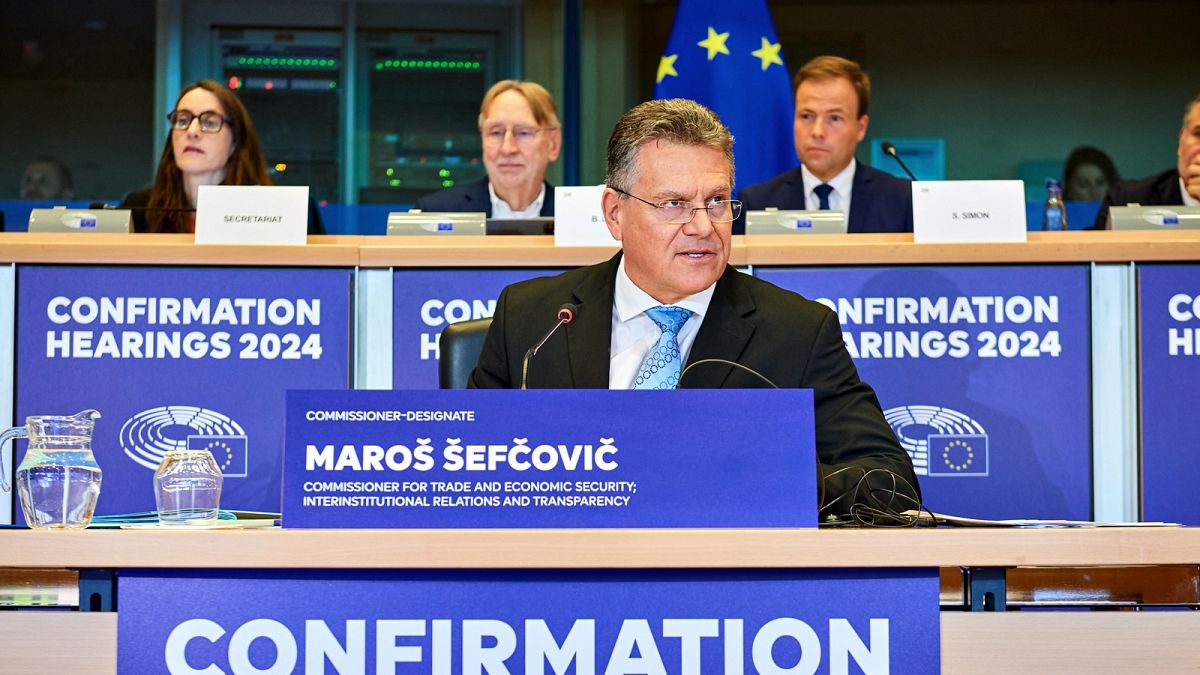The EU-Mercosur free trade deal, a source of contention, was defended by Slovakia’s Commissioner-designate in a confirmation hearing. Maroš Šefčovič stated that the deal could be concluded fairly, satisfying opponents demanding insurances for farmers and transparency. Negotiations with Mercosur countries (Argentina, Brazil, Paraguay, and Uruguay) have been ongoing for nearly two decades with the aim of creating a free trade area covering 780 million people. Šefčovič emphasized the need for a fair deal that addresses environmental concerns and farmers’ demands, while also acknowledging the resistance from Mercosur countries on environmental standards. He assured transparency in the negotiation process and pledged to provide necessary data once the negotiations are completed.
Šefčovič addressed the challenges posed by China, highlighting the Commission’s investigation into Chinese electric vehicles that are being subsidized to undercut European prices. The EU imposed tariffs on Chinese EV imports, prompting threats of retaliation from China. Šefčovič emphasized the importance of enforcing regulations against unfair trade practices and subsidies that harm European jobs. He described China as a complex trading partner with overcapacity, dumping, and protectionist restrictions, urging effective enforcement of trade duties. Šefčovič also criticized the circumvention of EU sanctions on Russia, mentioning China’s role in propping up Russia’s war economy and committing to deepen trade cooperation with Taiwan.
Glenn Micallef, the Maltese Commissioner-designate for Culture, Sport, and Intergenerational Fairness, faced scrutiny over his lack of executive experience in a confirmation hearing. Despite doubts, Micallef emphasized the importance of including young people in policymaking to ensure their interests are represented. He discussed various issues with the Parliament’s Culture Committee, including cyberbullying, the protection of European artists, and ensuring EU funding has a real impact on culture, sport, and youth programs. Micallef highlighted the potential of the cultural and creative sector for the economy and pledged to focus on competitiveness, cultural heritage preservation, and promoting culture in all policy areas.
The confirmation hearings shed light on the challenges and priorities facing the new European Commissioners. Šefčovič’s defense of the EU-Mercosur trade deal highlighted the need for fair agreements that address environmental concerns while protecting European farmers’ interests. His stance on China underlines the EU’s commitment to enforcing trade regulations against unfair practices and subsidies. In contrast, Micallef’s discussions on culture, sport, and youth programs underscore the importance of including young voices in policymaking and ensuring EU funding has a tangible impact. The hearings reflect the diverse range of issues and responsibilities that Commissioners must navigate in their roles.
Overall, the confirmation hearings underscore the complexity of international trade agreements and the importance of balancing economic interests with environmental and social considerations. The challenges posed by China and Russia require a robust response to safeguard European interests, while opportunities for cooperation with countries like Taiwan highlight the potential for strengthening ties in key strategic sectors. The focus on cultural preservation and youth engagement demonstrates the EU’s commitment to promoting inclusivity and diversity in its policies. As the Commissioners prepare to take on their new roles, these hearings serve as a reminder of the need for transparency, accountability, and responsiveness to the concerns of European citizens.








